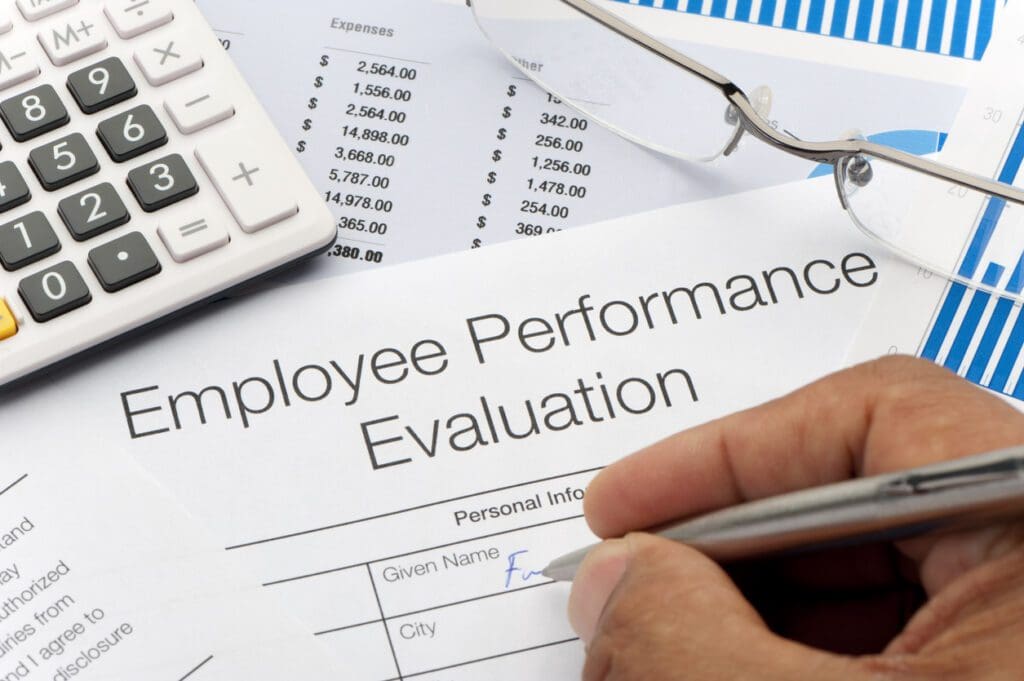Table of Contents
Performance Appraisals-What not to do!
Year-end evaluations and fresh personal development plans are associated with the start of a new year. Even though they put a lot of work into their performance management procedures, many organisations find using them as potent motivation tools challenging.
We suggest entirely getting rid of performance reviews. NOT EXACTLY! It is never inappropriate to sit down with personnel and acknowledge their efforts.
Through this blog, we will go through the ways to make formal evaluations into rewarding events that foster development and benefit both the organisation and the employee.
Following this is a list of the most common errors to avoid during appraisals.
Not prepared sufficiently
Some managers with time constraints might disregard the preparation stage if they contain a huge list of individuals whose performance is yet to evaluate. This process is not about you. Giving credit to each team member’s contributions over the year is necessary. Avoid performing appraisals on the spot. Include time in your schedule for planning and feedback collection to guarantee you have enough facts to conduct an in-depth evaluation of the entire year.
Overlooking the negative feedback
Many managers need more confidence to begin challenging talks. Nevertheless, for growth to happen, there has to be a candid discussion about the skill gap that team members need to close to advance to the next level of their careers must be openly discussed for growth to occur. Negative input should still be treated carefully, despite this.
To increase your confidence, prepare in advance, practice if necessary or get coaching. You can equip your employees with the techniques, such as role-playing, to support them as they strive to learn from their mistakes and progress ahead. Remember that skilled and competent managers will set ambitious standards whilst providing the support required to achieve that target.
Not paying enough attention.
A formal assessment is a daunting event for most people. The crushing sensation of spending time preparing a list of important problems to discuss with your management only to see them checking their phones or answering emails is another additional crushing feeling that must be addressed. The primary objective of annual appraisals is to recognise the contribution made by individual employees to the organisation through the span of the year.
Introducing new components
The most effective way to promote people’s growth and development is through consistent and constant developmental feedback. After all, you wouldn’t expect a director to give an actor constructive feedback shortly before the big premier after watching them rehearse for months.
Performance management is the same. What is the point of annual evaluation if you consistently offer yearly feedback?
A compilation of all the discussions you have had with your employee must go into the appraisals. Whenever something new is introduced, there is a chance that the employees will get defensive and less open to it. Make sure to include any recent feedback in your notes.
Not recapping the whole year
Appraisals are showreels to recognise your employee’s contribution over the past year. Recent occurrences should only overshadow some of the periods. Performance isn’t immovable, and external and internal events cause it. Record your performance discussions throughout the year and review your notes before the year-end appraisal.
Integrating pay discussions and assessments
Discussions concerning incentives and performance assessments can get very personal. Given their evident relationship, treating them as two different entities is advisable. Market price and organisational wage scales are a couple of instances where external factors may impact pay increases.
It could be difficult to determine the difference if those are combined with performance comments. Employees might depart the meeting feeling discouraged even after being given top-notch performance reviews due to lost performance signals.
Ensure you organise two different and include adequate details so the employees can completely understand what is happening and what they can do about it.
Put the process before the person.
Year-end evaluations fulfil the objective of honouring employee contributions and training employees for the upcoming year. It must be stated repeatedly since it can be easily forgotten and carried on as usual. Formal reviews are about more than just handing in the appropriate paperwork to HR. Even though the HR department may set up the framework for performance management and act as a lead in the process, everyone in the company should share responsibility.
Talking non-stop
Few individuals may find it unusual, but the person speaking the most during a performance review should be the person whose performance is being evaluated. It is the only way to ensure that the employees and their objectives are the primary concern, which means the responsibility for their career development is entirely on their shoulders.
Vague Analysis
An excellent client counsellor will need an entirely distinct set of skills than a financial team member who works as an accountant. Put down significant metrics to track progress over the 12 months that follow, and develop and share a suitable description of performance for the role you are being reviewed for.
Not adopting measures
Year-end assessments should end with goals for the forthcoming year and a way to accomplish them. Managers ought to promote this or, at the very least, monitor it to ensure that employees are moving in the right direction. Although individuals should be primarily responsible for handling their performance, they can need a little assistance from their boss.
Conclusion
Although formal performance management reviews sometimes acquire a poor rap, you can use them to inspire your employees greatly. Finding the right equilibrium between the systems already in place, the requirements of the employees whose performance you are evaluating and the managers guiding them throughout the course.
Be bold and use different approaches because successful performance management is discovering what works best for your distinct organisational setting.



